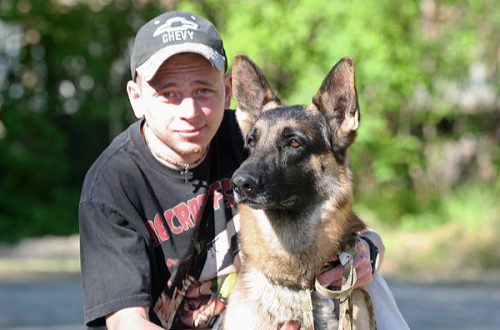Good day to all my fellow residents of Planet Earth. I’m Antonio Lasius Niger. Simply calls, a black ant.
For last two and a half years of time, we have noticed our fellow resident, humans have suffering severely from this pandemic calls ‘Corona’ or ‘Covid’. Yes, it is true that rest of the life on this beautiful planet had to face great dangers and losses because of humans, but having said that we still thinks that out of anywhere, this is the only place we all have to live in and if there is tiniest of effort any species can put to save the life on earth, it is their responsibility to come forward and do so.
Being one of tiniest species living on this earth, one might think that what can a tiny little ant like myself can offer to help a species like human, more advanced and more developed than us. But if you look into the history of human evolution, the entire structure of their evolution is built on observing each and every single bit of life living around them.
So, without further ado, let’s get into the main topic today, ‘Corona Pandemic’ and ‘Controlling the pandemic’, in accordance with what we ants do in such scenario.
We ants are social insects who lives together in large numbers with complex structure of relationships, lifestyle and governing. Having innumerable colonies all over the world, there is hefty traffic into and out of the nests. Some of our colonies are as densely inhabited as your New York City, where natural disasters, pandemics and enemy threats are no news for us.
It’s not a secret that humans studying us for decades and we too giving our best in whatever they need to learn from us. Biologist and Ecologists what humans called them have conducting research and experiments in order to understand the complexity of our lifestyle and how our colonies operate in any given situation. How we react to a pandemic has become a major scenario among these research and experiments conducting recently by your ecologists and biologists.
One of your most renowned ecologist of social insect behaviour at Northeastern University in Boston, Rebeca Rosengaus conducts experiments on exposing us to several pathogens which have the ability of putting the entire colony into a plague, which we’ve been succeeded in limiting the scattering of contamination. Most of the methods we use and the procedures we follow might looks awkward for you, but some you will definitely find similar to what you humans follow, such as simple immunization-like behaviour and social distancing. Facing and exposing to various types of pathogens, viruses and bacteria in our natural life, and sometimes infested with them, has become a profound risk that formed the very growth of our societies.
One of the most important fact that your biologists and ecologists noticed for so long in our colonies is that we keep our homes meticulously clean. Our workers dump waste and dead bodies outside the nests, so that they cannot impose any unnecessary threats to the nest or any of its resident. Being social insects, we groom each other, and often ourselves, regularly. Grooming offers us surprising benefits. As example, while cleaning each other, some of us shift small quantities of pathogens to our fellow ants, which these non-lethal, low-level contamination activate a defensive immunization which help us to fight against these viruses and immobilize them at the very first stage. This method can be related to once-common human method of immunizing against smallpox by exposing human to a small volume of liquid or parched skin material from a sick person, which is called by humans as ‘variolation’.
Some species of us ants, collect disinfectant tree resins and scatter them around their nests to ward off the viruses and bacteria, while others stash a formulary of microbe-killing mixtures, which they smear to their bodies and outsides, somewhat similar to humans using sanitizing liquids and fluids.
A quite famous method among my relative species who are larger in size compared to us, Black Carpenter Ants, are that their capability in developing a resistant response at the moment of confronting an infective bacterium and distribute the retort with their nest-mates so that the whole colony becomes more resilient. We pass along the immune system compounds from one to another nest-mates before they get infected, so their bodies can be ready for a possible exposure of the pathogen, virus or the bacteria. Yes, you guessed it right, this is our way of vaccination.
Another reason why we social insects are successful in evading these types of pandemics is the intricate systems that we have in distributing the chores among each other. This helps us limit our interactions to make it difficult for viruses to spread, which we call ‘organizational immunity’. While these separations of errands make our day-to-day tasks more efficient, it also helps us decelerating contagions. Once we detect a pathogen, we increase our modularity where we can get our chores done effectively as before with less interactions among the nest-mates. We make sure those who are infected indicate lesser connections and rest of the residents keep their contact circle smaller. This has always been an easy, cheap and an effective way for us to defend the colony from a pandemic. Ah yes, we call it ‘social distancing’ too.
I want you to completely trust me on this, throughout our evolution of millions of years, it is quite rare scenario of we are having one of our colonies crumpling under the weight of a pandemic. The reason for that is our extremely effective mechanism which we follow throughout the years.
So, finishing my lecture today, I hope that our success might offer some authentication, motivation and inspiration to humans struggling through this plague. Not only us, each and every single life source in this earth are always ready to help any of the species to survive and safeguard their lives.
Signing off, I’m Antonio Lasius Niger, your friend, little black ant.





